| "There's a grim future right now ahead of us for the next six weeks." -- Former FDA Commissioner Dr. Scott Gottlieb warning for a grim winter ahead
Welcome to the "Face the Nation" Five at Five newsletter. Scroll down for your five takeaways from today's broadcast with moderator Margaret Brennan on CBS. Did someone forward you this? Sign-up at cbsnews.com/email. 1. Slaoui sees the light at the end of the tunnel by Spring 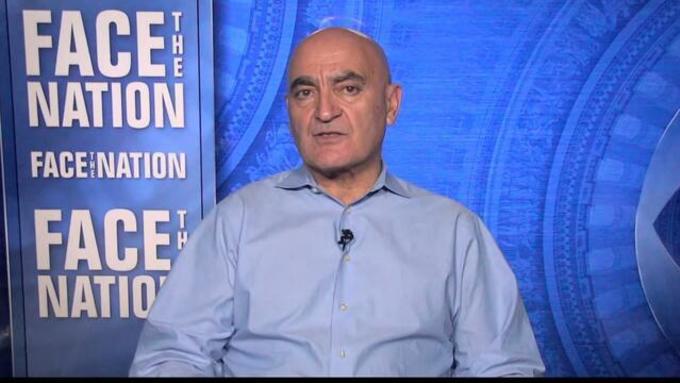 As the U.S. prepares to begin distribution of two coronavirus vaccines pending approval from the Food and Drug Administration (FDA) this month, Moncef Slaoui, chief adviser to Operation Warp Speed, said he sees a "light at the end of the tunnel" and life could begin to return to normal by the spring. What we asked: How long before we could see a vaccine have an impact on lowering infections? What Slaoui said: "Well, I think we may start to see some impact on the most susceptible people probably in the month of January and February, but the- on a population basis for- for- for our lives to start getting back to normal, we're talking about April or May. And therefore, it's absolutely vital that everybody, A, take comfort in the fact that we have light at the end of the tunnel and find the energy in that to continue to wear our masks, distance, wash our hands, pay attention to what we are doing to make sure that we are there by the spring to benefit from the vaccine." Why it matters: The latest news out of the vaccine development world is giving Americans something to hope for. While the Trump administration laid the groundwork for the swift development and distribution of a COVID-19 through its Operation Warp Speed initiative, the incoming Biden administration will take the helm of the federal government as distribution to the general population ramps up next year. 2. A grim warning: Gottlieb forecasts near 4K deaths a day 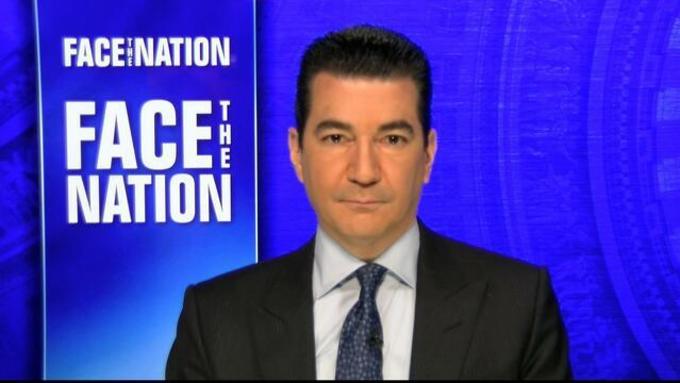 With infections and deaths from the coronavirus surging nationwide, Dr. Scott Gottlieb, former commissioner of the Food and Drug Administration (FDA), warned Sunday it's likely the pandemic will continue to worsen in the coming weeks and predicted the U.S. could reach nearly 4,000 deaths per day in January. What we asked: The CDC director put the number at 450,000 people dead by February. That is double where we are right now. Do you agree with that forecast? What Gottlieb said: "I think we have a worsening situation around the country. Things are going to continue to get worse for the next four to six weeks. We're not likely to see a peak in the number of infections until about the end of December, maybe into January. And we're going to see a peak in a number of deaths and hospitalizations probably at some point in the middle of January. So as bad as things are right now, they're going to get a lot worse. I think, by the end of the year we will be at probably about 300,000 deaths. And by the end of January, we could be pushing 400,000 deaths. We're going to see consistently probably 2,000 deaths a day. And as we get into January towards the peak, we're going to see over 300,000- 3,000 deaths a day, unfortunately, and we'll maybe get close to 4,000 deaths a day." Why it matters: As of Sunday, there have been nearly 14.6 million confirmed coronavirus cases in the U.S. and more than 281,000 deaths, according to Johns Hopkins University. But public health officials are warning the American people should brace for a devastating winter, and Centers for Disease Control and Prevention Director Dr. Robert Redfield predicted Wednesday the number of deaths could rise to 450,000 by February. 3. Krebs on GOP's 2020 stagnation: Accept it and "move on" 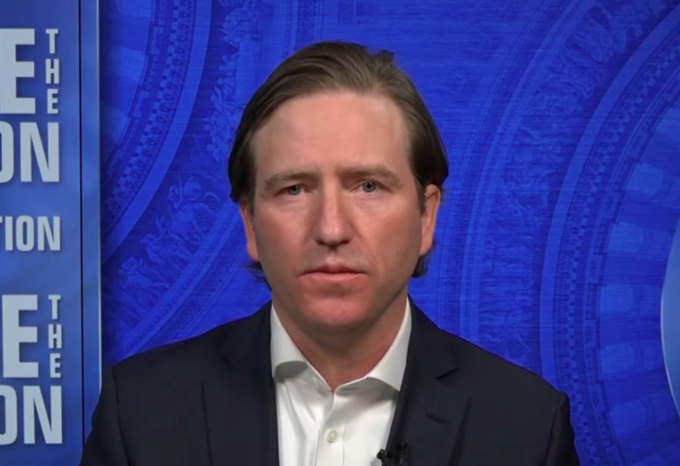 Chris Krebs, the former top cybersecurity official with the Trump administration who was ousted after the November election, said Sunday it's "well past the time" for Republican leaders to accept the outcome of the presidential race and recognize Joe Biden as the president-elect, even as President Trump falsely claims the election was rigged against him. What we asked: Why are the majority of Republicans remaining silent on what you're describing here as a security risk? What Krebs said: "I can't speak to what their motivations are. To those that have spoken up, it's the right thing to do. And I think the rest of them have to acknowledge that the system in place to conduct the election was legitimate, and particularly in the House, they've accepted their outcomes and their races. I don't see any difference here between the- the presidential race. It is well past the time where all leaders of the Republican Party need to accept the outcome of this race, and move on and- and accept that Joe Biden is the president elect." Why it matters: Mr. Biden was projected the winner of the presidential election November 7, and in the weeks since, states have certified their election results. Mr. Biden cleared the 270 electoral votes he needed to deny Mr. Trump a second term Friday when California certified its presidential election results. Yet 27 of 249 congressional Republicans still have yet to accept Biden as the next commander-in-chief. 4. Chicago mayor endorses stay-at-home orders to stop spread 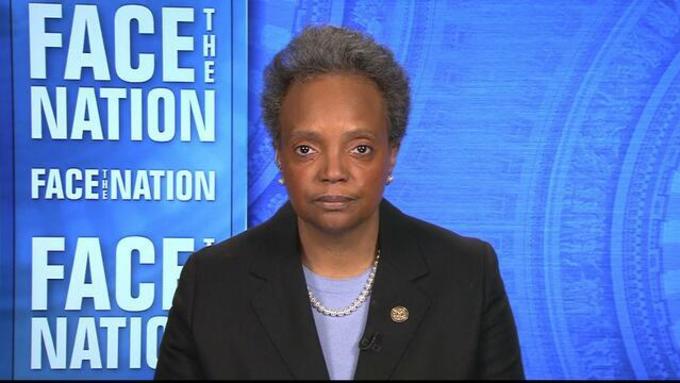 As local leaders weigh their options on how to quell the latest surge in coronavirus cases, Mayor Lori Lightfoot says Chicago's stay-at-home order has contributed to a significant decrease in COVID-19 cases: 1,300 cases per day from 2,000. What we asked: You issued a stay-at-home order that will expire in about 10 days. Is that kind of directive helping you control the spread? Does it make a dent when you have an outbreak like this? What Lightfoot said : "I think it has. We went from well over 2,000 cases a day. Now we're down to about 1,300. Not where we want to be by any stretch, but a significant improvement just over a couple of weeks. We're still nervously watching the numbers to see if there's going to be a post-Thanksgiving surge. But I think everything that we can do to heighten people's awareness that this second surge is just as deadly, if not more so than the first is critically important. So I do think that these advisories make a difference." Why it matters: While overall decreases are a positive in the fight against the coronavirus pandemic, Lightfoot notably recognized the challenges the virus still poses in more diverse communities such as her own: "We're seeing people of color, both Black and Latinx, leading in the number of cases infected, but also leading in deaths. We've done a lot I think. Certainly the treatments have improved because we've learned a lot more about this virus. But it's still a concern because of the underlying health disparities that bring on comorbidities that make Black and brown Chicagoans more susceptible to the worst results of this disease." 5. Nebraska Med CEO says staff at "tip of the spear" in battle against COVID 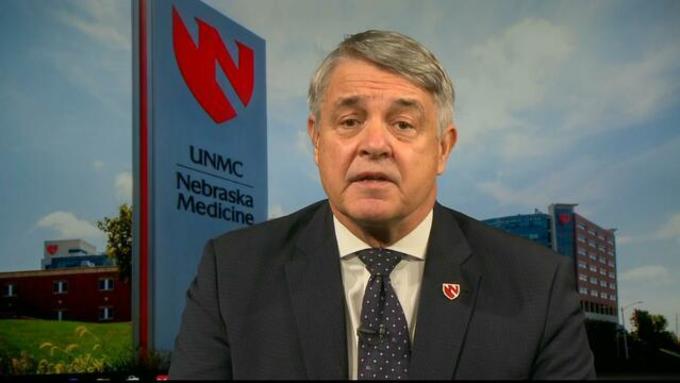 Dr. James Linder says his hospital staff at Nebraska Medicine have been at the "tip of the spear" in dealing with short supplies and a "patchwork of policies that could control the virus" as hospitals across America are being stretched beyond their limits as care providers during a pandemic. What we asked: What does that mean for frontline workers at your hospitals? What Linder said: "We've been dealing with a public health crisis for 10 months now and our health care workers have been at the tip of the spear in battling the pandemic, in dealing with short supplies, and dealing with a patchwork of policies that could control the virus. I think if you look at the hospitals in America, many of them are at the breaking point. Some may have broken. We had some challenges in the last couple of weeks in Nebraska, but by working together, we were able to navigate that and make sure that care was available to everyone." Why it matters: Dr. Linder noted a startling trend being seen at hospitals nationwide as staff and supplies are at their breaking point: "The actual standard of care has changed because there aren't adequate staff, supplies or other resources."
|
No comments:
Post a Comment